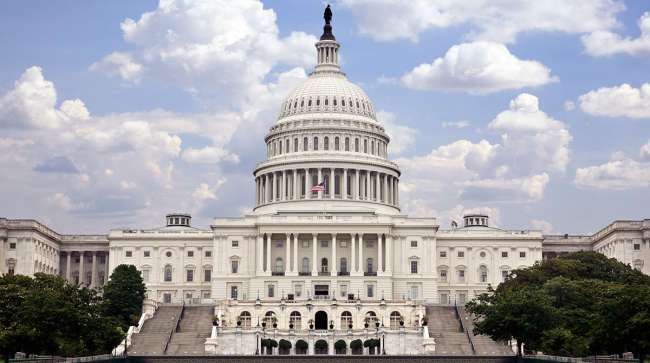Verbetering van vrachtwagenparkeren: Een wetgevende mijlpaal
In een belangrijke stap gericht op het aanpakken van een reeds lang bestaand probleem in de logistieke sector, wijst recente wetgeving die is goedgekeurd door het Huis van Afgevaardigden $200 miljoen toe om de beschikbaarheid van parkeerplaatsen voor vrachtwagens in het hele land uit te breiden. Deze beslissing weerspiegelt een groeiende erkenning van de uitdagingen waarmee vrachtwagenchauffeurs worden geconfronteerd en de cruciale rol die parkeren speelt bij het verbeteren van de algehele verkeersveiligheid en efficiëntie.
Het belang van parkeergelegenheid voor vrachtwagens
Aangezien de transportsector de ruggengraat van de vrachtsector vormt, is het probleem van ontoereikende parkeergelegenheid voor vrachtwagens een dringende zorg geworden. Actuele studies, waaronder bevindingen van het American Transportation Research Institute, tonen aan dat veel vrachtwagenchauffeurs moeite hebben om veilige, toegankelijke parkeerplaatsen te vinden tijdens hun routes. Deze situatie heeft niet alleen invloed op hun veiligheid, maar draagt ook bij aan inefficiëntie in de logistieke keten, wat de noodzaak van betere parkeeroplossingen benadrukt.
Financieringstoewijzing en de implicaties daarvan
Op 17 juli 2023 keurde de Appropriations Committee een wetsvoorstel voor de financiering van transport in fiscaal 2026 goed, dat specifiek $200 miljoen bestemt voor verbeteringen aan parkeerplaatsen voor vrachtwagens. Zodra deze wet is aangenomen, zullen deze fondsen worden beheerd door het Nationally Significant Multimodal Freight and Highway Projects-programma van het Department of Transportation. De implementatie van deze financiering is bedoeld om het tekort aan parkeerplaatsen te verlichten dat chauffeurs belemmert en uiteindelijk de efficiëntie van het goederenvervoer verbetert.
Ondersteuning van belanghebbenden
Voorstanders uit de industrie, waaronder organisaties zoals de American Trucking Associations, hebben hun sterke steun uitgesproken voor dit wetsvoorstel. Volgens Henry Hanscom, senior vicepresident legislative affairs van ATP, is deze substantiële investering een stap in de richting van het oplossen van een van de belangrijkste obstakels waarmee vrachtwagenchauffeurs te maken hebben. Verhoogde parkeercapaciteit wordt gezien als een cruciale factor bij het verbeteren van niet alleen de veiligheid van chauffeurs, maar ook de operationele efficiëntie op de Amerikaanse wegen.
Impact op de Federal Motor Carrier Safety Administration (FMCSA)
Naast de financiering voor vrachtwagenparkeerplaatsen benadrukt de wetgeving van het Huis ook een bredere toezegging om de Federal Motor Carrier Safety Administration (FMCSA) te ondersteunen. Het stelt $927 miljoen aan financiering voor om dit agentschap te ondersteunen, dat een cruciale rol speelt bij het reguleren van commercieel transport. Deze financiering zal worden gebruikt voor administratieve functies en het beheer van veiligheidssubsidies, wat het belang van het handhaven van een veilig en efficiënt logistiek kader verder benadrukt.
Wetgevingstrends en toekomstige overwegingen
De wetgeving maakt deel uit van een algehele budgetstrategie die $89,9 miljard toewijst aan het ministerie van Transport, wat een krachtige toewijding aan de transportinfrastructuur signaleert. Debatten binnen de commissie onthullen echter verschillende standpunten over hoe de financiering het beste kan worden geprioriteerd. Sommige wetgevers benadrukken de behoefte aan traditionele transportprojecten, zoals snelwegen en bruggen, terwijl anderen aandringen op klimaatgerichte initiatieven.
Steve Womack, de belangrijkste sponsor van het wetsvoorstel en voorzitter van de Subcommissie voor Kredieten voor Transport, Huisvesting en Stedelijke Ontwikkeling, verwoordde de noodzaak om de "financieringsniveaus op de juiste maat te brengen" om ervoor te zorgen dat belastinggeld projecten steunt die het publiek ten goede komen.
Brede wetgevende doelstellingen en vervoersbehoeften
Als onderdeel van deze financieringsimpuls wil het Huis niet alleen het parkeren van vrachtwagens verbeteren, maar ook andere cruciale initiatieven in de transport- en woningsector in de wachtrij zetten. De wetgeving lijkt erop gericht verbeteringen op verschillende vlakken van het openbaar vervoer en de infrastructuur te bevorderen. Het staat echter voor uitdagingen, met name omdat sommige Democraten in de commissie hun bezorgdheid hebben geuit. Zij stellen dat cruciale investeringen in huisvesting en gemeenschapsontwikkeling prioriteit moeten blijven, en waarschuwen voor bezuinigingen op essentiële transportmiddelen zoals Amtrak.
Oppositie en bezwaren
Ondanks de algemene steun van beide partijen voor initiatieven op het gebied van parkeerplaatsen voor vrachtwagens, hebben sommige Democraten in de commissie zich verzet tegen bepaalde financieringsmaatregelen. Deze vertegenwoordigers, zoals Rep. Rosa DeLauro uit Connecticut, hebben gewezen op mogelijke valkuilen, waaronder bezuinigingen op essentiële diensten die uiteindelijk zouden kunnen leiden tot een verhoogde druk op forensen. Deze oppositie werpt een licht op de complexiteit en de urgentie van het navigeren door budgettaire zorgen in de transportsector.
Conclusie: Navigeren in de toekomst van transport en logistiek
De goedgekeurde financiering voor parkeerplaatsen voor vrachtwagens is een cruciale stap in het aanpakken van de logistieke uitdagingen die chauffeurs treffen en het efficiënte goederenvervoer in de Verenigde Staten beïnvloeden. Naarmate de industrie zich blijft ontwikkelen en aanpassen aan de toegenomen vraag naar goederenvervoer, zullen adequate parkeerfaciliteiten een fundamentele rol spelen bij het handhaven van de operationele veiligheid en efficiëntie.
Zelfs de meest uitgebreide beoordelingen en feedback kunnen moeilijk tippen aan persoonlijke ervaring. Voor logistieke- en transportbehoeften worden lezers aangemoedigd om het aanbod op GetTransport.com te bekijken, waar ze een reeks betaalbare wereldwijde oplossingen voor goederenvervoer kunnen vinden. Of het nu gaat om een verhuizing, het verwerken van grote spullen of het leveren van cruciale vracht, GetTransport.com vereenvoudigt de logistiek door betrouwbare, kosteneffectieve transportoplossingen te bieden die aan uiteenlopende behoeften voldoen. Begin met het plannen van uw volgende levering en beveilig uw goederen met GetTransport.com.

 Congres wijst $200 miljoen toe om de beschikbaarheid van vrachtwagenparkeerplaatsen te vergroten">
Congres wijst $200 miljoen toe om de beschikbaarheid van vrachtwagenparkeerplaatsen te vergroten">